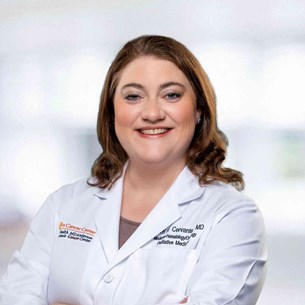Meeting
2020 ASCO Quality Care Symposium

UT Health San Antonio MD Anderson Cancer Center, San Antonio, TX
Sherri Rauenzahn Cervantez, Sadiyah Hotakey, Amanda Hernandez, Stephanie Warren, Jennifer Quintero, Cesar Garcia
Background: Advance directives (ADs) are legal tools that direct treatment or decision making and appoint a surrogate decision-maker (health care proxy). The presence of ADs is associated with decreased rates of hospitalization, use of life-sustaining treatment, and deaths in a hospital setting. Additionally, completed ADs lead to increased use of hospice or palliative care, more positive family outcomes, improved quality of life for patients, and reduced costs for healthcare. Despite the benefits of advance care planning, only 18-36% of adults have completed advance care plans. The aims of our pilot study were to 1) implement a synchronized system for advance care planning across the UT Health San Antonio health system and 2) improve advance care planning rates in a primary care clinic and palliative oncology clinic. Methods: During a 10-month prospective period, system processes for advance care planning were reviewed with identification of three primary drivers for advance care plan completion: a) electronic/EMR processes, b) clinical workflows and training, and c) patient resources and education. As a result of this quality improvement initiative, standardized forms, resources, and processes for obtaining advance care plans were implemented in the selected clinics. Results: At baseline, the primary care clinic had 84/644 (13%) patients and the palliative oncology clinic had 25/336(7%) with completed advance care plans. With the implementation of a standardized process, 108 patients (23% increase in rate of completion) in the primary clinic and 56 patients (71% increase in rate of completion) in the palliative oncology setting completed advance care planning (ACP). Additionally, there was a 5-fold increase in billing of ACP CPT codes within the clinics during the first 6 months compared to the prior full year. Conclusions: While this quality improvement pilot initiative was limited to two clinics, the synchronized modifications suggest that the system changes could be expanded to other clinics in our UT health system to promote ACP discussions, completion of plans, and ultimately improved patient care.
Disclaimer
This material on this page is ©2024 American Society of Clinical Oncology, all rights reserved. Licensing available upon request. For more information, please contact licensing@asco.org
2020 ASCO Quality Care Symposium
Poster Session
On-Demand Poster Session: Quality, Safety, and Implementation Science
Quality, Safety, and Implementation Science
Quality Improvement Research and Implementation Science
J Clin Oncol 38, 2020 (suppl 29; abstr 233)
10.1200/JCO.2020.38.29_suppl.233
233
Online Only
Abstract Disclosures
2023 ASCO Quality Care Symposium
First Author: Alice Francis
2023 ASCO Annual Meeting
First Author: Christine Ann Garcia
2022 ASCO Quality Care Symposium
First Author: Sandhya Mudumbi
2023 ASCO Quality Care Symposium
First Author: Dana Weber